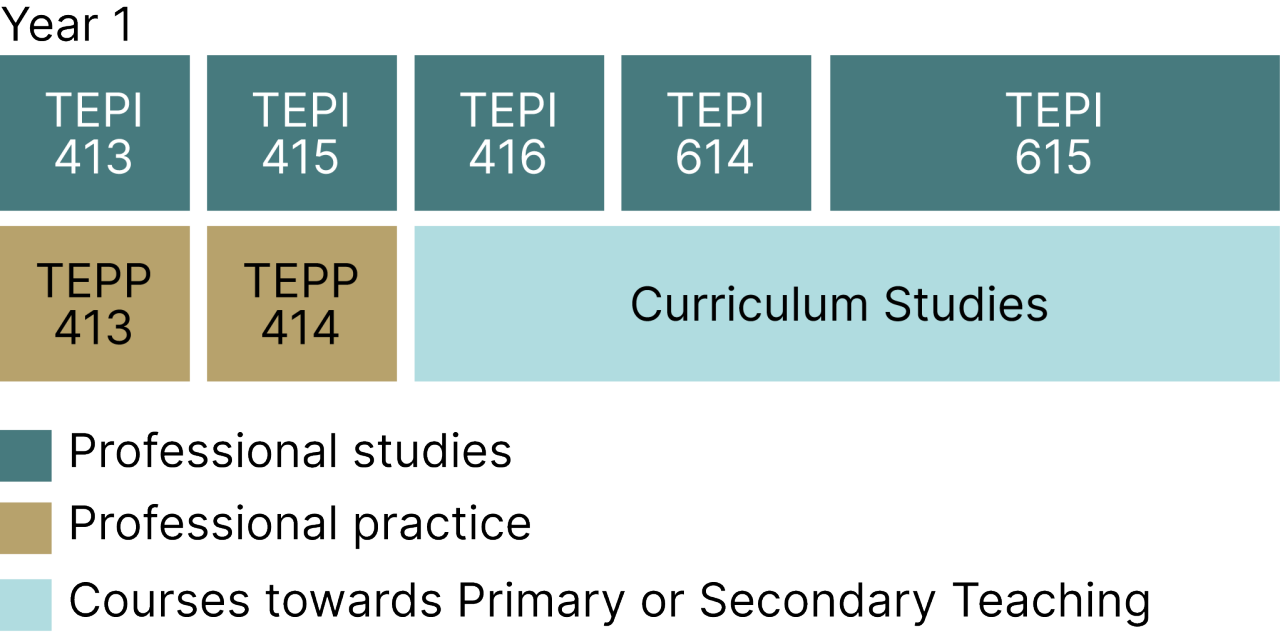Master of Teaching and Learning
- Degree Structure - Start In
- January

Carry out practical study and research towards becoming a primary or secondary teacher.
180
The Master of Teaching and Learning is an exciting option for graduates seeking to become primary or secondary teachers and who wish to distinguish themselves with a postgraduate qualification.
This professional Master’s will equip you with enhanced research-based knowledge and inquiry skills, experiences of contemporary educational theory, and professional practice so you can become a teacher with the expertise essential to schools in the 21st century. It is also an ideal pathway for those who have a particular interest in and commitment to supporting learning for diverse learners in mainstream schools, including Māori and Pasifika children and youth, learners for whom English is a second language, and those who experience special learning needs.
The degree is endorsed in either Primary Education or Secondary Education, and both are internationally recognised professional qualifications. You will meet Matatū Aotearoa | Teaching Council of New Zealand teaching standards, and will be able to apply for registration and certification with the teaching council as a school teacher.

Applicants for the MTchgLn programme need a degree in a disciplinary field appropriate to teaching and learning in Aotearoa New Zealand, with either:
You will also need to have English language ability and demonstrate literacy and numeracy competence that meets the requirements set out by Matatū Aotearoa | Teaching Council of New Zealand, and meet the requirements stipulated in the Children’s Act 2014.
For the Secondary endorsement, you will need a body of knowledge from your previous studies in a subject relevant to the Aotearoa New Zealand secondary school curriculum eg, English, physics, geography, etc.
For the Primary endorsement, you will need to demonstrate your mathematics capability. Find out more about the proposed mathematics entry requirement for primary ITE programmes.
For the full entry requirements, see the Regulations for the Master of Teaching and Learning.
For information on gaining admission to UC teacher education programmes, please see the Guide to Applying.
The MTchgLn has one intake each January. Selection for entry is based on:
As places are limited, we strongly recommend that you apply for programme entry as early as possible.
Applications are open any time, and close on 31 October for international applicants and 1 December for domestic applicants before the start of the programme in late January, or when places are filled (whichever comes first).
For more details on entry requirements and the teacher education application process, see the Guide to Applying.
The MTchgLn delivery model is designed as a school-university community of practice. It is undertaken within a digitally enriched learning environment that reflects and supports modern learning pedagogies that are necessary for current and future professional practice in education.
The MTchgLn is an intensive, professional preparation programme comprised of 180 points, over one calendar year (January—December). It involves:
Part I must be completed with a B Grade Point Average or better before moving onto Part II.
The period of enrolment for a full-time student is 1 year. Part-time enrolment is not permitted for this degree.
For full requirements, see the Regulations for the Master of Teaching and Learning.
You will have professional practice experiences in two different schools.
The first semester placement will be completed in a local primary or secondary school context, and consist of one week of school observation early in the semester, followed by a seven week practice intensive.
In the second semester, you will complete a seven-week practice intensive at a different school. You also have an opportunity to experience one week in another school context.
The MTchgLn is made up of two parts that comprise a total of 180 points, involving compulsory coursework and courses towards an endorsement.
Part I must be completed with a B Grade Point Average or better before moving onto Part II.
You will complete 150 points from the following course lists depending on your chosen endorsement. These courses are from the Postgraduate Diploma in Teaching and Learning schedule.
Compulsory courses (both Primary and Secondary Education endorsements)
Primary Education endorsement
Secondary Education endorsement
Secondary Education — specialist teaching subjects
For our secondary teacher qualifications, you will need to choose a teaching subject and have an academic background in this subject. Your teaching subject is chosen from those taught at junior and senior secondary levels.
You will focus on your specialist teaching subject (which you will preferably have studied to 300-level). It is also a good idea to pick up an additional teaching subject, for which you have a background of study to 100 or 200-level (depending on the subject).
We offer the following specialist teaching subjects:
Secondary Education — additional subjects
For our secondary teacher qualifications, you will also need to choose an additional teaching subject, for which you have a background of study to 100 or 200-level (depending on the subject).
Additional teaching subjects are usually junior subjects (years 7—10), these include:
Additional senior social sciences subject are only available where junior Social Studies is already part of your specialist teaching subject:
Additional senior Health, OE, and PE subjects are only available where junior HPE is already part of your specialist teaching subject:
Additional senior sciences subjects are only available where junior Science is already part of your specialist teaching subject:
To specialise in any of the above teaching subjects, you will need to take one of:
If you do not have the background for one of these additional teaching subjects, you can take a course from the Primary Education endorsement schedule above, or an approved course elsewhere at UC.
All MTchgLn students complete the following:
2024 tuition fee estimate: $12,276 (180 points)
2025 tuition fee estimate: $13,013 (180 points)
2024 Special Programme Fee: $46,350 (180 points)
2025 Special Programme Fee: $48,600 (180 points)
2026 Special Programme Fee: $51,000 (180 points)
Because the MTchgLn is an initial teacher education programme, these postgraduate programmes are the most relevant further study:

Each small block represents a 15-point course. However, some courses may be 30 points or more.
This diagram is an example only – other combinations are possible. For specific course requirements, see the Regulations for the Master of Teaching and Learning.